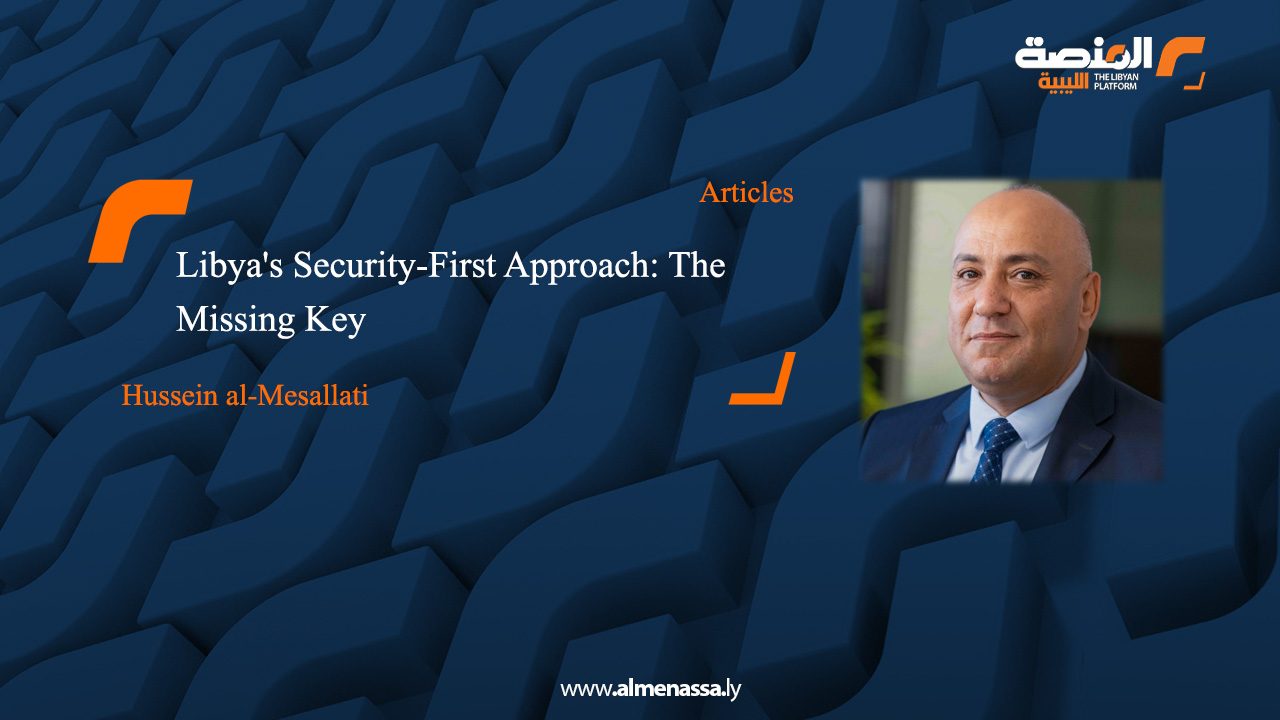By Hussein al-Mesallati
Few observers of the Libyan crisis would dispute the fundamental role of security in achieving any sustainable political settlement. Years of experience have demonstrated the futility of numerous initiatives and pathways aimed at resolving the conflict, a failure attributable not merely to political weaknesses but significantly to the neglect or deferral of essential security considerations. This delay, as events have starkly illustrated, has proven detrimental, eroding Libyans’ trust in proposed solutions and perpetuating the enduring stalemate.
In the country’s east and south, the General Command of the armed forces has successfully established stability, a development that has positively influenced the organization of security and military units, fostered a degree of public order, and resulted in a noticeable decrease in crime rates. This progress extends to border control and the reduction of irregular migration and smuggling. These successes underscore the critical importance of a robust and unified security apparatus as a prerequisite for any effective political transition.
Conversely, the western region grapples with profound security chaos stemming from the absence of a genuine military institution and the dominance of armed factions vying for influence and resources, a situation fueled by a government that perceives its survival as contingent upon appeasing these groups. Despite attempts by the interior ministry of the Government of National Unity to project an image of security measures being implemented, the reality on the ground reveals a stark failure. None of the announced plans have materialized, and promises to dismantle militias remain unfulfilled. This disorder has broadened the scope of lawlessness, posing an increasing threat of a complete breakdown of control in the capital, Tripoli.
Against this backdrop, the United Nations continues its efforts through the Joint Military Commission, yet tangible results have remained elusive, particularly as representatives from the western region within the commission lack effective control over the armed groups. For its part, the United States recently sought to invigorate the security track through a meeting in Washington involving U.S. State Department officials and both Lieutenant General Saddam Haftar, the army’s chief of staff, and Mohammed Zubi, the undersecretary of defense in the Government of National Unity, in a bid to break the impasse.
Amid the deteriorating security situation in Tripoli, Abdul Hamid Dabaiba, the head of GNU, and Mohamed al-Menfi, the head of the Presidential Council, have resorted to disingenuous rhetoric. Both affirmed to UN envoy Hannah Tetteh the necessity of providing a secure environment for the independence of the House of Representatives’ decisions. However, the reality reveals that the security deficit exists within their own areas of control, manifested through militias that operate outside state authority and are employed as political tools.
Despite the attempts at obfuscation by al-Menfi and Dabaiba, the UN mission responded unequivocally, emphasizing the dire security conditions in the western region and calling for de-escalation and the avoidance of further conflict. The U.S. embassy echoed this call amid increasing reports of security tensions in the capital.
The fundamental question remains: Does a government incapable of enforcing security within its own spheres of influence possess any genuine prospect of successfully leading the country toward stability? And are international statements urging de-escalation sufficient to produce viable solutions? Is it not time to adopt a new approach that prioritizes the security file and imposes solutions that guarantee actual stability, thereby paving the way for crucial milestones, foremost among them elections?


